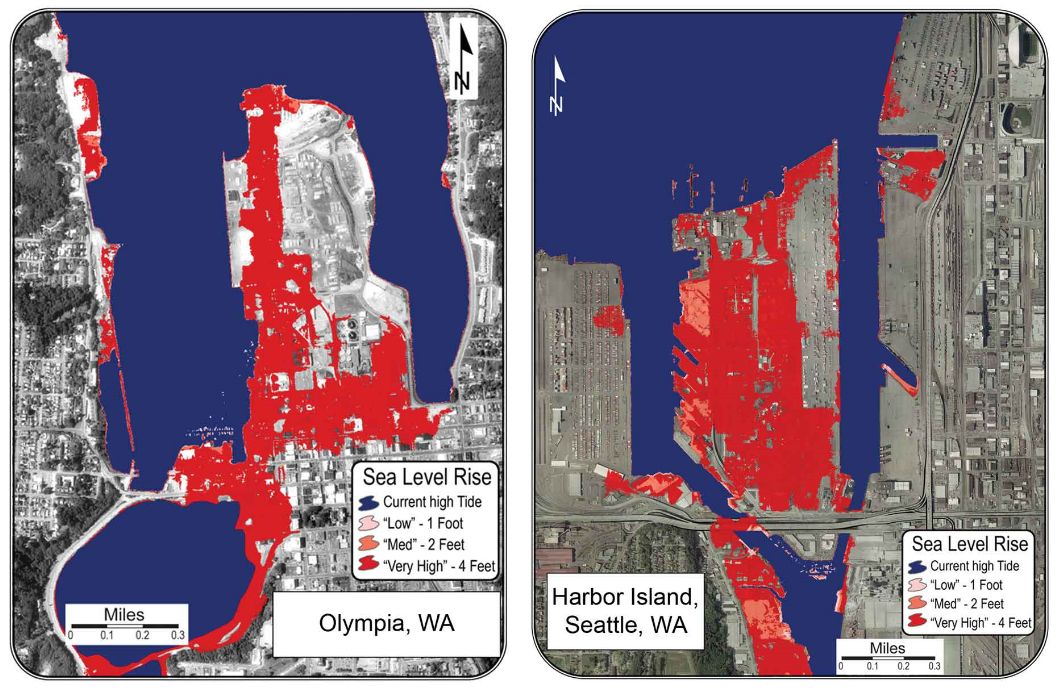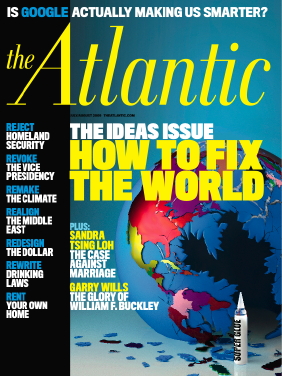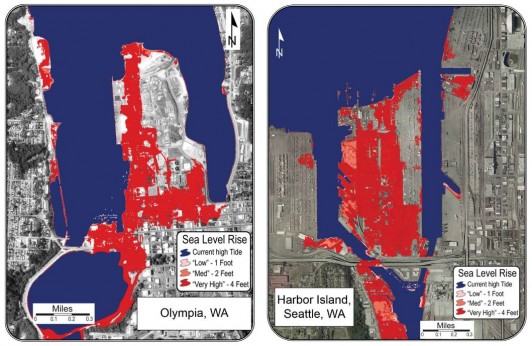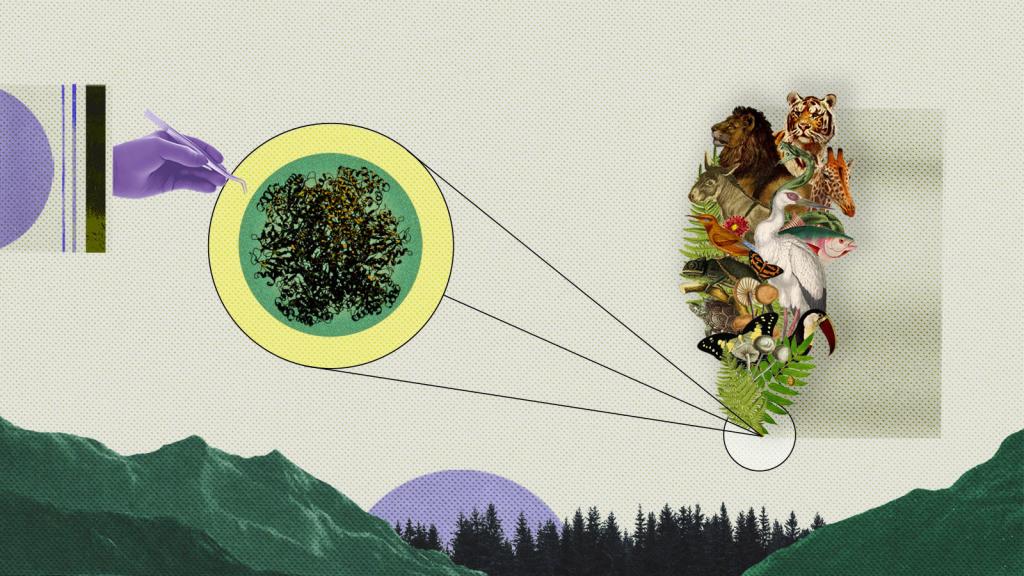The new U.S. climate change impacts report — on which we’ve been reporting all day — includes some hard-hitting regional data.
For example, did you know that annual average temperatures in the Northwest rose about 1.5 degrees Fahrenheit over the last century — with some areas seeing increases up to 4 degrees? And the rising mercury ain’t slowing any time soon: average temps are predicted to rise another 3-10 degrees in this century.
That may not sound too bad to those of us craving some summer warmth. But it’s scary news if you’re a local salmon craving cold water — or a ski bum craving cold snow, for that matter.
How else will rising CO2 emissions (and rising temperatures) affect our region? Here are some highlights (low lights?) from the report:
- Declining springtime snowpack leads to reduced summer streamflows, straining water supplies.
- Increased insect outbreaks, wildfires, and changing species composition in forests will pose challenges for ecosystems and the forest products industry.
- Salmon and other coldwater species will experience additional stresses as a result of rising water temperatures and declining summer streamflows.
- The projected reduction in snow cover will adversely affect winter recreation and the industries that rely upon it.
- Sea-level rise along vulnerable coastlines will result in increased erosion and the loss of land. (See scary red image below.)
 Highly populated coastal areas throughout Puget Sound, Wash., are vulnerable to sea-level rise. The maps show regions of Olympia and Harbor Island (both located in Puget Sound) that are likely to be lost to sea-level rise by the end of this century based on moderate and high estimates.
Highly populated coastal areas throughout Puget Sound, Wash., are vulnerable to sea-level rise. The maps show regions of Olympia and Harbor Island (both located in Puget Sound) that are likely to be lost to sea-level rise by the end of this century based on moderate and high estimates.
P.S. I’m focusing my anxiety on the Northwest regional data because, well, that’s where I live. But the news is bad all over … check it out for yourself.



